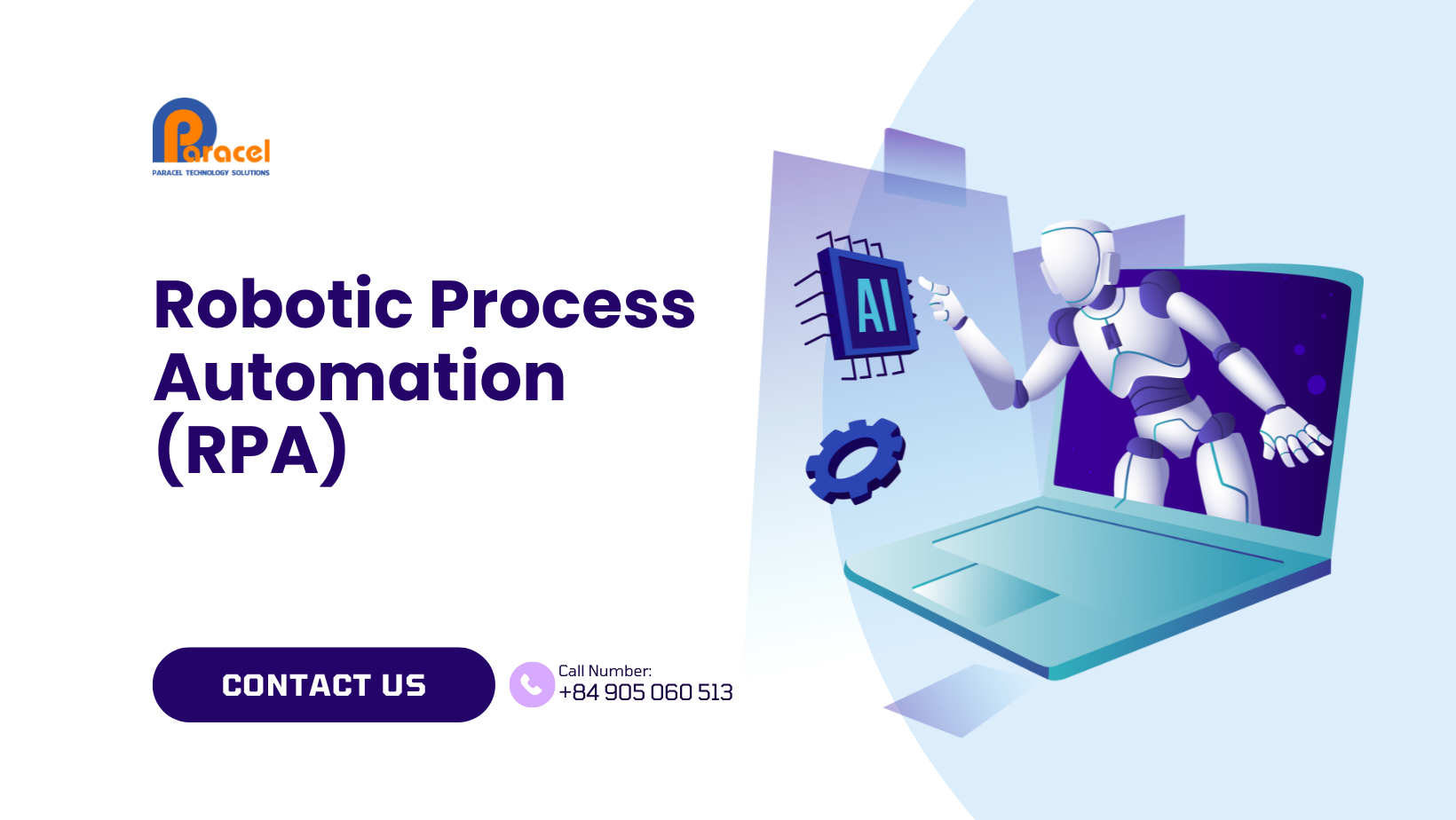
Odoo ERP Management Software has become a popular trend in business management, facilitating the integration and optimal management of resources and operations. Odoo is highly regarded for its flexibility, user-friendly interface, and adaptability to businesses of various scales. In this blog, join Paracel to delve into what Odoo software is and explore a detailed assessment of the Odoo system.
1. What is Odoo Management Software?
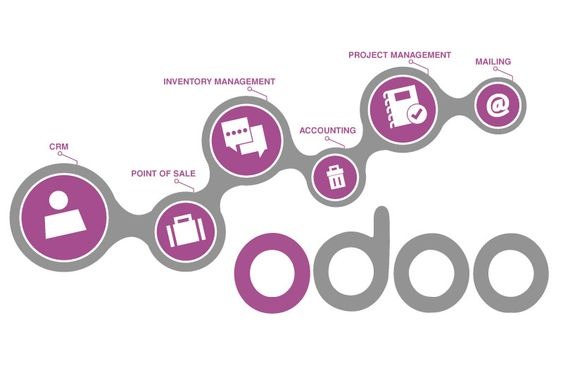
Odoo – An Integrated Business Resource Management System.
Odoo is a comprehensive enterprise resource management system that encompasses various business management functions, ranging from customer management, supplier management, inventory management, financial accounting to production management… With Odoo ERP, businesses can optimize their operations, enhance productivity and efficiency, minimize risks, and make intelligent decisions swiftly. It is a versatile and comprehensive management solution suitable for both small and medium-sized enterprises, as well as large enterprises with complex management needs.
Currently, the Odoo system boasts around 40,000 applications and has more than 7,000,000 users worldwide. The substantial user base is evidence of the benefits that Odoo has been providing and continues to deliver to its users.
The Past – Evolution of Odoo ERP Management Software
- 2002: Fabien Pinackaers founded the Tiny ERP system.
- 2008: Tiny ERP rebranded as Open ERP.
- 2010: Open ERP released the Revolution V6.0 version.
- 2012: Open ERP launched the latest Version 7.0.
- 2014: Open ERP rebranded as Odoo and released Version 8.0
Odoo ERP software, an open-source solution, has undergone faster development than any other ERP solution on the market. Through examining various databases, it can be observed that there are now over 1000 installations per day, a number that is steadily increasing.
The past serves as a crucial motivator behind the achievements Odoo is currently attaining. The journey began when Fabien Pinackaers in Belgium created a small ERP solution, known as Tiny ERP.
Odoo’s development from a small ERP to Odoo ERP can be summarized into three main stages.
- STAGE 1 – Rapid product development and direct deployment. During this stage, the user base grew steadily.
- STAGE 2 – A new business model. Odoo became more popular as an increasing number of users engaged with the ERP solution.
- STAGE 3 – From 2011 onwards.
Various versions and developments have enhanced functionality compared to traditional ERP systems. More users are turning to Open ERP, and some prefer Odoo/Open ERP over any other ERP solution. Numerous features have been added to the open-source project, and different revolutionary versions of ERP have been developed. This widespread acceptance is a result of unique features and the quality of ERP solutions.
The current status of Odoo
Currently, Odoo holds the top position in open-source ERP.
- With over 1000 installations daily, it is the most widely installed software globally.
- More than 3000 useful modules have been contributed by the community.
- Over 500 partners collaborate for distribution in 60 countries.
- Over 1000 developers are actively working worldwide.
Support is provided in over 20 languages, including Chinese.
The Future of Odoo Management Software
Currently boasting 4 million Odoo ERP users, the future looks exceedingly promising for Odoo. Analyzing Google keyword search trends, we can easily gauge the relevance of Odoo ERP and its global acceptance.
Primarily due to its open-source nature, scalability, and programming language, Odoo ERP has positioned itself as the number one choice among its competitive counterparts. As the landscape of business processes undergoes transformation and new technologies are rapidly developed, deploying Odoo ERP becomes pivotal for businesses experiencing growth. The implementation and customization of Odoo present significant market opportunities, and well-trained, experienced companies can effortlessly build around this prospect.
As an official partner of Odoo, Paracel Technology Solutions is technically and functionally trained by Odoo. Odoo consulting is one of our core focuses. With numerous years of experience in development, customization, and comprehensive deployment of Odoo, our seasoned developers have explored Odoo’s potential across accounting, manufacturing, business, real estate, construction, and more.
2. Odoo ERP Software Versions
The Odoo development team has introduced two main versions to the market: Odoo Community and Odoo Enterprise.
- Odoo Community: Also known as the open-source ERP version of Odoo, this version is provided free of charge to users, offering essential features for managing small to medium-sized businesses. It provides flexibility for customization, allowing users to easily adjust it to their specific needs. However, it comes with certain limitations, particularly in-depth modules.

- Odoo Enterprise: This is the premium version presented by Odoo S.A. Odoo Enterprise integrates advanced features and functionalities compared to Odoo Community. It includes in-depth management modules and extended integration features. Importantly, it is a closed-source version, and businesses are required to pay fees for deployment and based on the number of users during usage.
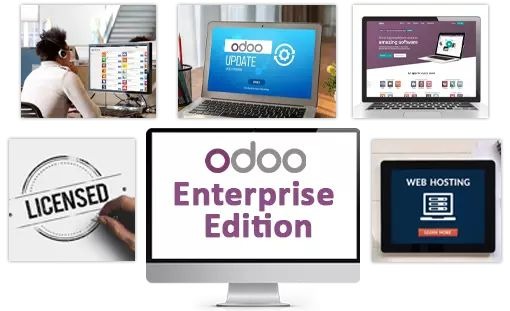
3. Key Features in Odoo ERP
Here is a summary of the detailed modules and features within Odoo software:
Customer and Partner Data Management (CRM):
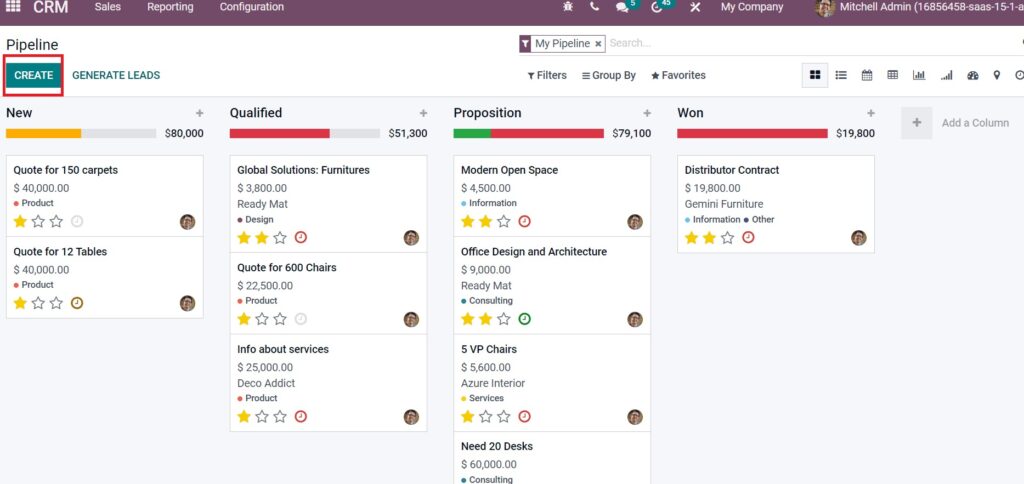
Odoo’s CRM system enables businesses to store and manage comprehensive information about customers and partners. This includes managing contact information, transaction history, as well as handling contracts and quotations. This enhances customer experience and contributes to outstanding revenue growth for businesses.
Sales Management:
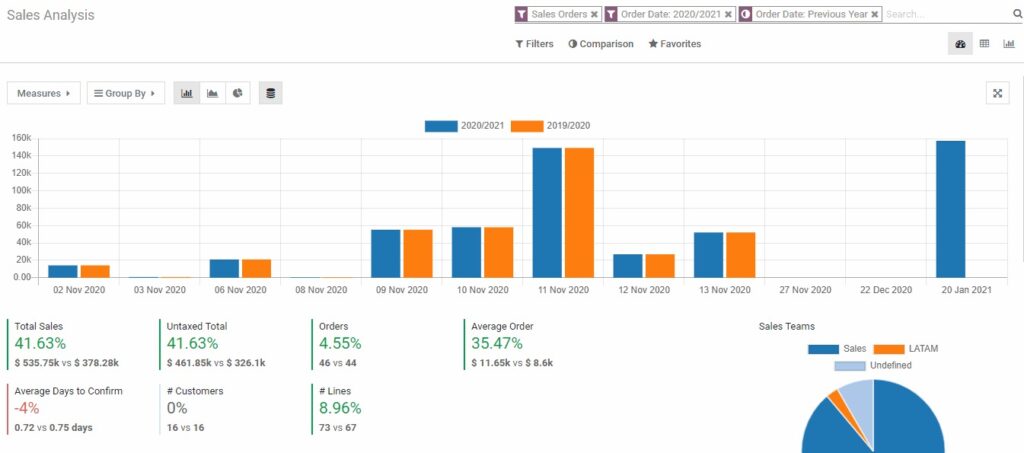
In the sales module, Odoo ERP provides businesses with a comprehensive business process management system. This includes order management, inventory tracking, quotation creation, and sales activity reporting…
Financial Management and Accounting
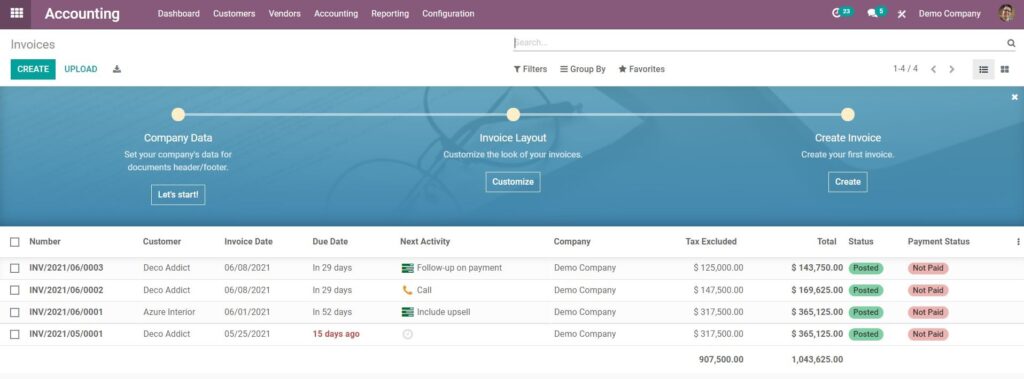
Odoo Accounting not only equips businesses with financial management features but also aids in comprehensive accounting oversight. This includes generating financial reports, managing income and expenses, handling payroll, and addressing tax-related matters.
Human Resource Management (HRM)
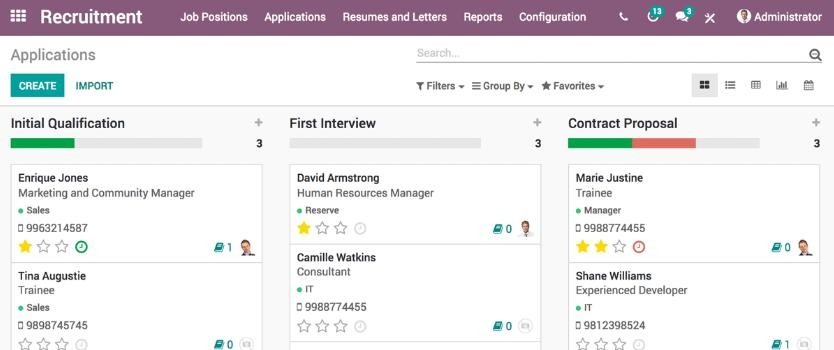
Odoo software not only takes charge of managing employee information within a business but also monitors work history, capabilities, and skills of the workforce. Moreover, it supports effective recruitment and employee training processes.
Production and Inventory Management
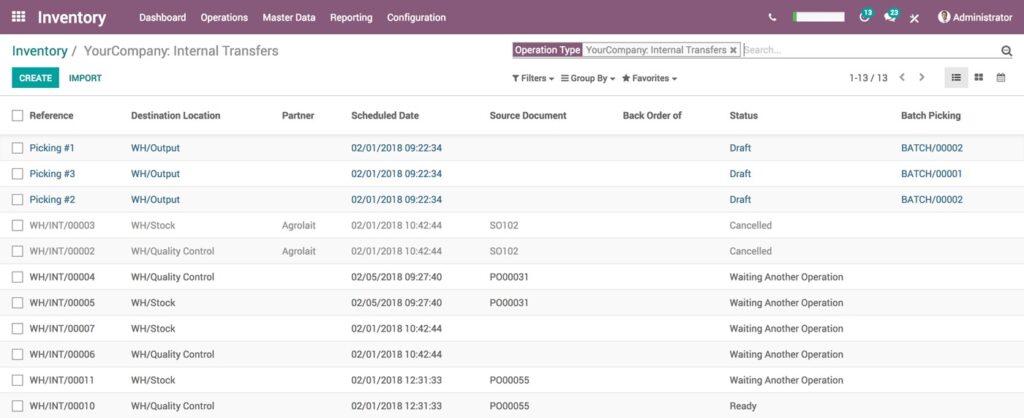
In the realms of production and inventory, Odoo ERP provides efficient management features for production processes, inventory storage, and effective control of stock movements.
Purchase Management
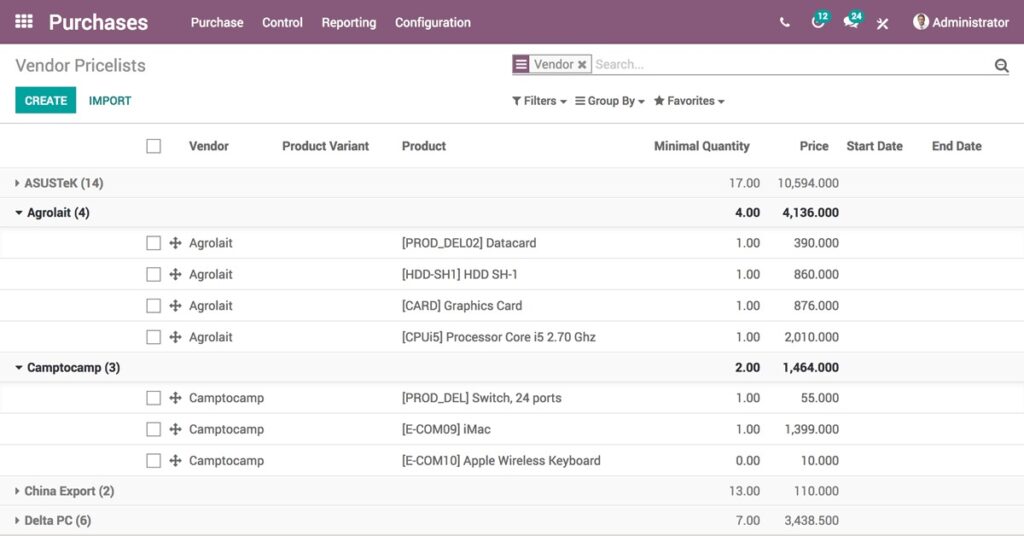
The Purchase module in the Odoo ERP system provides various features for managing the procurement activities of a business. This includes creating purchase requests, participating in tenders, generating purchase orders, managing payments, and overseeing the entire procurement process.
Manufacturing Management
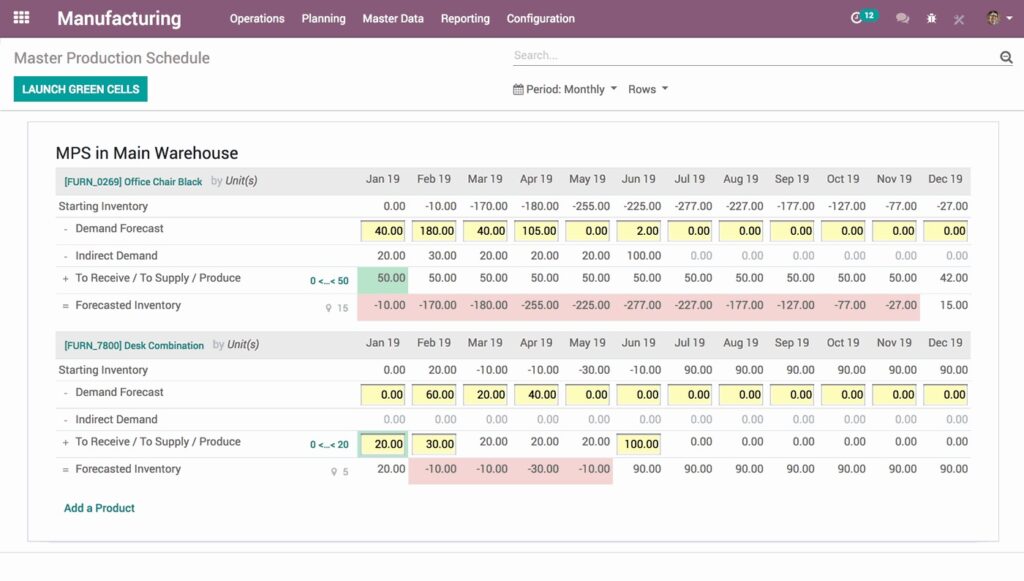
In the Odoo Manufacturing module, which oversees production, the Odoo ERP system offers comprehensive features such as production planning, management of manufacturing processes and operations, as well as tracking the progress of manufacturing projects.
Project Management
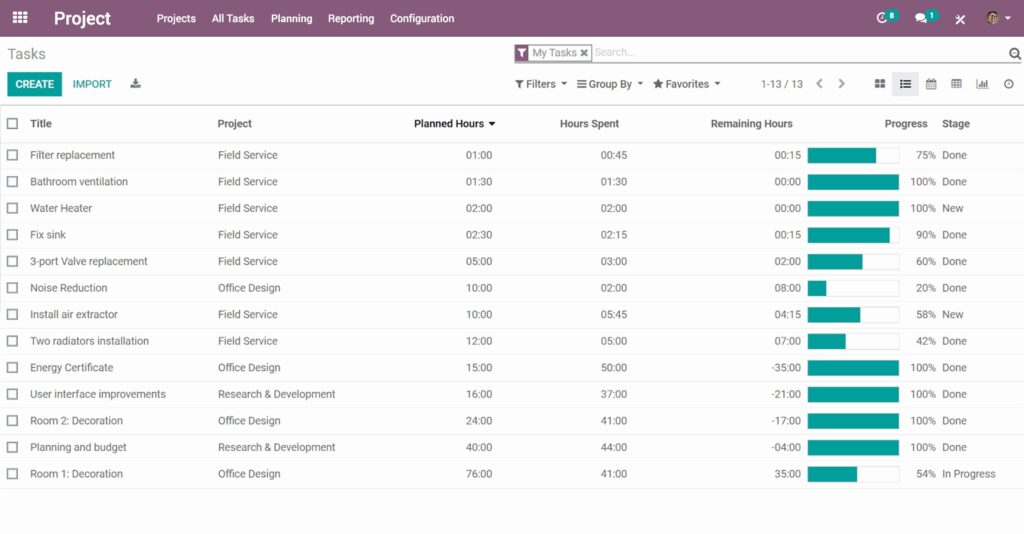
The Project Management module in Odoo ERP plays a crucial role in helping businesses efficiently create, monitor, and manage projects. This includes project planning, task assignment, progress tracking, and reporting on project activities.
Website Management
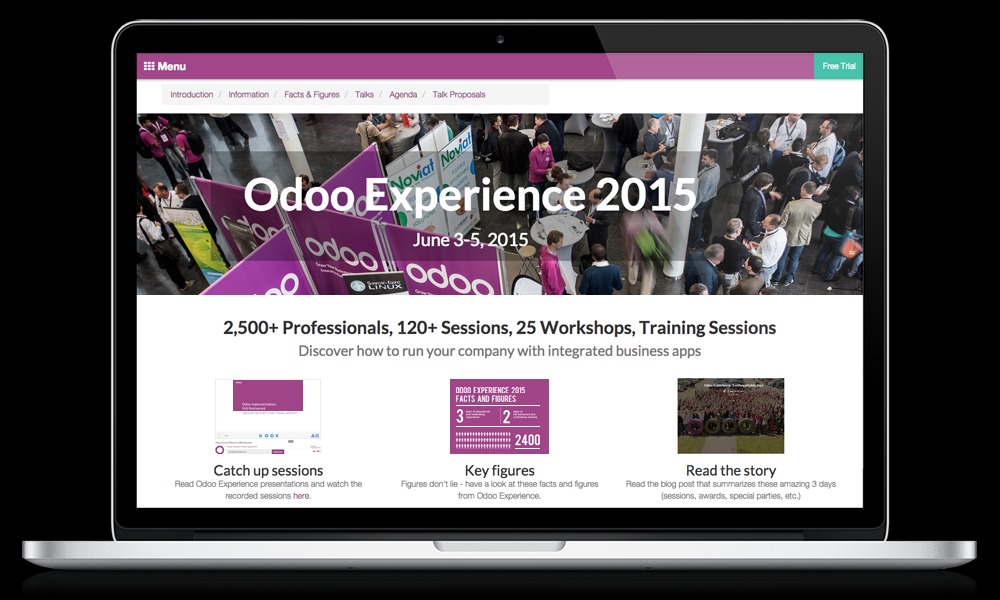
Businesses can easily establish their own website with optimal UX/UI without the need for extensive coding. Users can create a website through simple drag-and-drop actions.
E-commerce

With Odoo’s E-commerce module, users can effortlessly build an online store, manage products, and handle orders for their business.
3. Benefits of Implementing Odoo ERP for Businesses
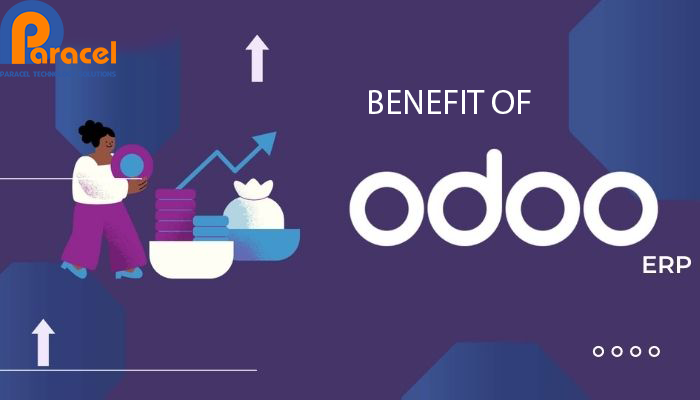
The popularity of Odoo ERP can be attributed to the compelling advantages it brings to businesses. Let’s explore them with Paracel:
Cross-Platform Flexibility
In addition to its PC platform, Odoo ERP allows users of the Enterprise version to access mobile applications completely free of charge. Furthermore, the Odoo interface can be seamlessly utilized on browsers without encountering any obstacles.
Streamlining Decision-Making and Risk Reduction
Odoo ERP provides accurate and comprehensive business information, enabling managers and employees to make decisions more swiftly. It also minimizes risks in business operations by assisting companies in making informed decisions based on precise and synthesized business data.
Comprehensive Enterprise Management Capability
True to the statement provided by the Odoo team, ‘An app for every need,’ Odoo ERP offers a plethora of modules and features essential for effective enterprise management. Additionally, it allows businesses to customize their system based on their specific needs, whether it involves adding or removing modules.
Notably, all data from Odoo’s various modules are interconnected, facilitating smooth data transitions, avoiding errors during data entry, and providing real-time insights into business operations for business owners and managers.
Easy Integration and Scalability
Based on experience in researching and deploying Odoo for businesses, few ERP software systems exhibit the robust integration and scalability capabilities as Odoo does. With the provision of free APIs, businesses can seamlessly integrate Odoo with third-party software without encountering any obstacles or difficulties. This is a feature highly praised by Paracel when comparing Odoo with other ERP software.
Reasonable Implementation Costs
Odoo software offers both paid and free versions, providing a diverse range of choices suitable for businesses of varying scales. Additionally, Odoo ERP allows businesses to choose and pay for individual modules, optimizing costs during the ERP system investment phase. Odoo account pricing starts at just $6-$10 per user per month, with each module costing an additional $4-$30 per month.
Globally Trusted ERP Solution
With over 7 million users worldwide, according to supplier statistics, Odoo stands out as a widely adopted and applied ERP solution in the business realm. This has led to the formation of a dynamic and rapidly responsive support community.
Odoo features a dedicated online forum where any member can engage in discussions, seek advice, and contribute ideas to continually improve the solution. However, a limitation is that effective communication with the global community requires proficiency in the English language.
High-Level Security and Permissions
Odoo ERP allows for the customization of individual and group permissions, ensuring privacy and security for users and businesses alike. Business administrators find it easy to monitor the activities of individuals and departments within the Odoo software, thereby increasing management efficiency and information security. This helps minimize the risk of data leaks that could impact overall business operations.
User-Friendly Interface with Vietnamese Language Support
Odoo earns praise for optimizing the user experience (UX/UI). Modules and features are designed in a simplified manner to facilitate easy navigation and operation for users.
Odoo follows an intelligent design language, featuring various data view models such as tabs, lists, calendars, pivot tables, and flexible charts, all aimed at catering to the user’s preferences. Particularly noteworthy is the fact that Odoo also provides a Vietnamese version of the software to support users.
Rich App Store
Odoo provides a diverse integrated app store, making it easy for businesses to search for and integrate features suitable for their comprehensive business management.
4. Limitations of Odoo ERP Business Software
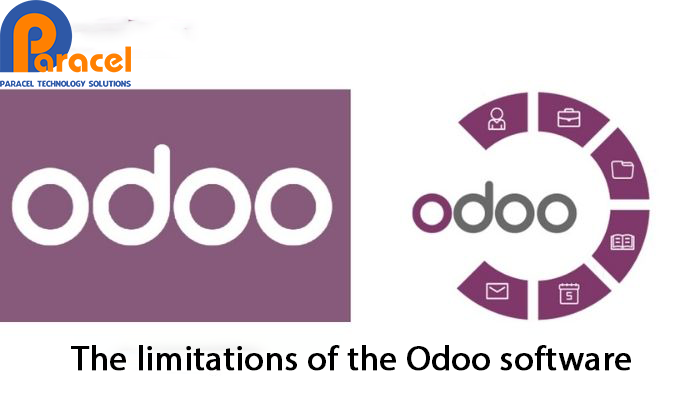
Alongside the advantages and benefits that Odoo software brings to businesses, there are also several limitations to consider:
Complex Setup Process:
Implementing and configuring Odoo ERP can be challenging for many businesses. This is a common issue when deploying any ERP software, not unique to Odoo. It requires businesses to have a team of programmers who understand the Odoo ERP system well enough to set up and deploy it in a way that aligns with the specific needs of the business.
Difficulty in System Maintenance:
As Odoo is open-source software, its usage may lead to compatibility issues or an inability to fully meet the business’s requirements. In such cases, businesses will need support from the software provider, the Odoo community, or Odoo programmers to address the issues.
However, not all issues can be resolved accurately and immediately through community or founder support. Therefore, it is advisable for businesses to seek assistance from in-house programmers or Odoo deployment partners in Vietnam, such as Paracel.
Suboptimal Support from the Founders:
Despite Odoo’s widespread popularity globally, user feedback suggests that support activities from the software provider are not up to standard. This may stem from a large user base with insufficient human resources for support.
In conclusion, while Odoo offers numerous benefits, businesses should be aware of these limitations and take proactive steps to address them for a more successful implementation and usage of the ERP system.
5. Considerations for Odoo ERP Implementation in Businesses
To deploy Odoo ERP effectively for a business, it is crucial to follow the following steps:
- Evaluate and Choose the Suitable Version: Due to the various versions of Odoo available, businesses need to research and select a version that aligns with their specific needs and requirements.
- Create a Deployment Plan: Identify the deployment requirements, conduct a detailed analysis, and formulate a deployment plan, including the deployment timeline, tasks to be executed, and an appropriate budget.
- Install and Configure Odoo ERP: Execute the installation and configuration of Odoo according to the specified requirements and plan. This includes creating accounts, importing data, customizing the interface, and configuring system parameters.
- Customize and Integrate: If necessary, businesses can customize and integrate the Odoo software with their existing systems to ensure compatibility and user convenience.
- Testing and Training: After the deployment is complete, conduct thorough testing to ensure all functions operate smoothly and provide training to employees on using Odoo for optimized efficiency.
- Deployment and Support: Once testing and training are concluded, proceed with deploying Odoo throughout the entire business. Additionally, offer post-deployment support services to ensure stable operations and meet the business’s requirements.
Conclusion
In summary, considering the benefits Odoo ERP brings, businesses can deploy it to enhance management and foster business development. However, successful Odoo ERP implementation requires meticulous preparation and adherence to deployment and training steps to ensure maximum efficiency.
If you are interested and in need of consultation or implementation of Odoo ERP software, please contact Paracel – a gold partner of Odoo in Vietnam, for guidance and support in installing all Odoo modules at a cost of $1000.



